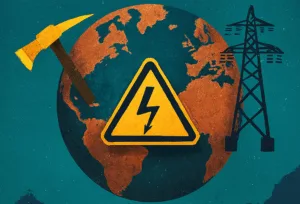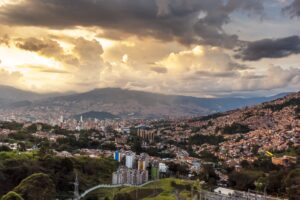The most recent energy crisis should have taught us the cost of poor decisions. That’s why, even though much has already been said about energy security, I feel compelled to insist on the topic—this time through a lesser-known anecdote about innovation and energy, involving France, the United Kingdom, and a German merchant.
In the late 18th century, life moved at a slow pace, and daily activities generally came to a halt once daylight faded. Lighting was a luxury, and before the invention of electricity, the development of gas lighting was a breakthrough that dramatically improved cities and their residents’ quality of life.
At that time, two scientists—unknowingly working in parallel—were experimenting with coal gas, laying the groundwork for gas lighting. In the UK, William Murdoch was running trials and trying to pitch the idea to his employer, Boulton & Watt. Meanwhile in France, chemist Philippe Lebon was testing different gas mixtures.
Lebon had successfully demonstrated his invention in 1799, but progress stalled due to a lack of interest. The French government refused to fund a distribution scheme for his gas lamps. In contrast, in the UK, private sector investment enabled Murdoch to advance the idea.
Ultimately, it was a German merchant, who had witnessed Lebon’s demonstration and later patented the lamp himself, who went on to install the first public gas lighting in London. This revolutionized city life: once lit by gas, streets became safer, cleaner, and livelier, extending productivity and activity well into the night.
While just one of many anecdotes in the history of modern energy, this story made me think about recent decisions in the energy sector. The first example that came to mind was the contrasting cases of shale gas and oil in Europe and the U.S.—the former banning them and increasing dependency, and the latter embracing them and regaining energy independence.
Because inaction is also a powerful action. Like in Lebon’s France, some European countries failed to read the moment, declined to invest in diversified energy matrices, and instead put all their eggs in the renewable energy basket—even while fossil fuel demand remained unchanged.
To meet that demand, especially for gas, they relied on third parties, leaving themselves geopolitically exposed—especially to a country like Russia, which, during times of tension, used gas supply as diplomatic leverage. Some political decisions set countries back decades and mark turning points in their history.
For governments to effectively address energy security, they must recognize their responsibility to current and future generations. The key lies in diversification of energy sources, strategic reserves and infrastructure, logistics and transportation, and crisis and emergency management. That, in turn, requires visionary, responsible investment decisions—the kind not all are willing to make.
Energy is the foundation of the well-being humanity has achieved, and when a country possesses resources and demand persists, the answer should be to produce them sustainably, ensuring reliable access and self-sufficiency. As a former Colombian energy minister wisely said:
“The most expensive energy is the energy you don’t have.”
Carolina Rojas Gómez
Student, Executive Master of Management in Energy
BI Norwegian Business School


